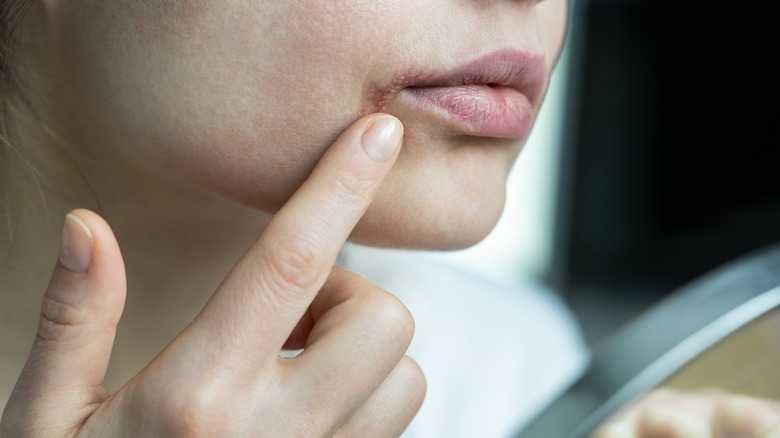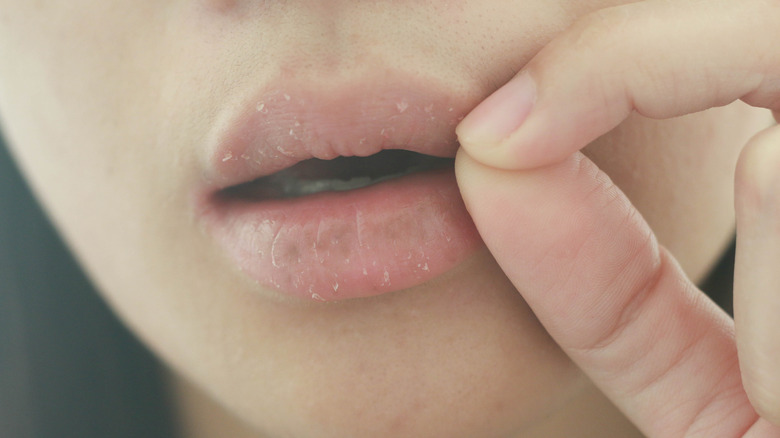What Is Lip Eczema, And How Can You Tell If You Have It?
Chapped lips are a cold weather reminder that summer is the best season. However, experiencing this condition year-round can be a sign of grave matters. Your lips are a cherished vehicle for makeup and piercings, but also require tender loving care. This prominent facial feature is composed of sensitive skin. The outer layer is thin and there aren't any sebaceous glands in your lips. Those are the glands that can be mistaken for blackheads when filled with oil. They provide the skin with moisture. Since there are none on the mouth, your lips are more likely to be dry. And licking your lips to provide hydration makes matters worse. Saliva leaves your lips dry and irritated.
If your lips rival the Sahara Desert, you may have lip eczema, and slathering on lip balm might not be enough. Learn exactly what this condition is, how you can tell if you have it, and how to treat it.
What chapped lips and oral herpes have in common with lip eczema
Cracked, peeling lips can be a sign of eczema or eczematous cheilitis. Lip eczema is irritation or inflammation that manifests as scaly, dry, or wounded skin. It's chapped lips to the extreme, resulting in achy or blistering kissers. Your lip dermatitis might be an allergic reaction. Certain foods or products used for the mouth, such as retainers or toothpaste, can provoke sores and redness on your lips. Wearing makeup can also trigger eczema flare-ups. Or for those suffering from atopic dermatitis, the lips may be an area your eczema presents itself.
Fortunately, the angular cheilitis form of lip eczema is not contagious but can ward off potential suitors. This lip dermatitis typically appears at the edges of your mouth. It is usually a symptom of yeast or fungal infections. However, infective cheilitis like herpes is contagious. Then you should stay away from potential suitors. While balms can quickly solve chapped lips, this form of eczema can be chronic and require specific treatment.
How to treat lip eczema
Your lips drying out is a major cause of lip eczema. Products designed to restore hydration are a key part of the remedy. "Look for ingredients like mineral oil, lanolin and cocoa butter, which can boost your skin's natural moisturizing factors," dermatologist Emma Wedgeworth advises (via Glamour). Skincare brand Lano has a collection of lip balms and scrubs using lanolin. It is all-natural lip care that can treat dry, scaly, itchy lips that eczema can cause. Work in lip moisturizers before bed to fight dermatitis while you catch some Z's. Other facial skincare, like sunscreens for eczema, can help as you apply it over your lips.
As allergies are another catalyst for lip dermatitis, consult with your doctor to discover what irritants are your triggers. Avoid these ingredients, especially in any products used on and around your mouth. To minimize inflammation, medications with 1% hydrocortisone should do the trick. Sweat, saliva, extreme weather, and stress are external stimulants for lip eczema. Don't let sweat stay on your face, stop excessive lip licking, and avoid harsh weather when possible. Your kissers will thank you.


